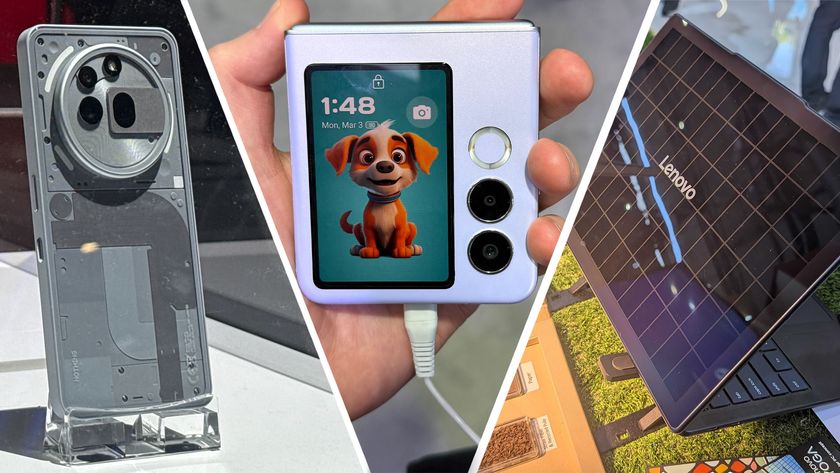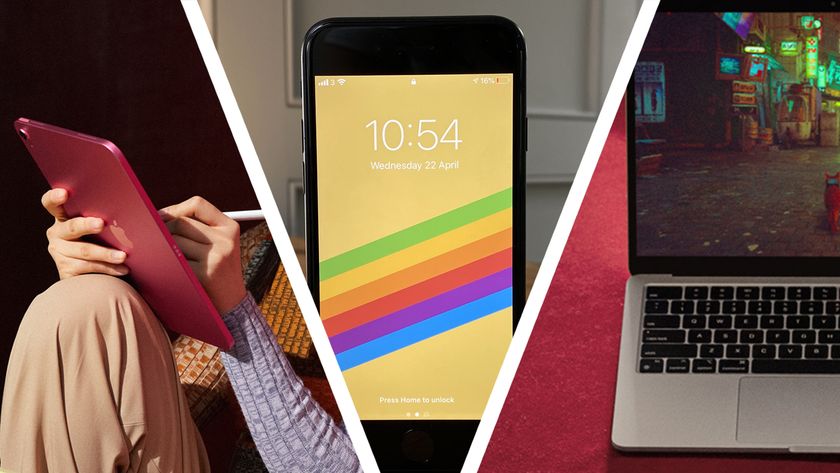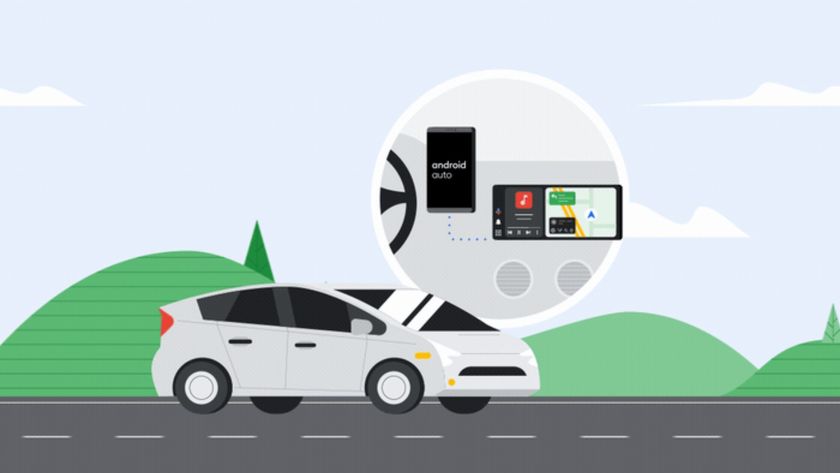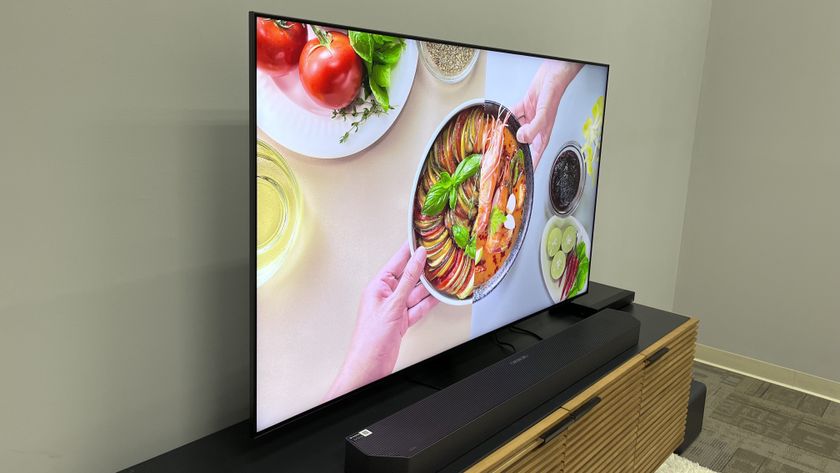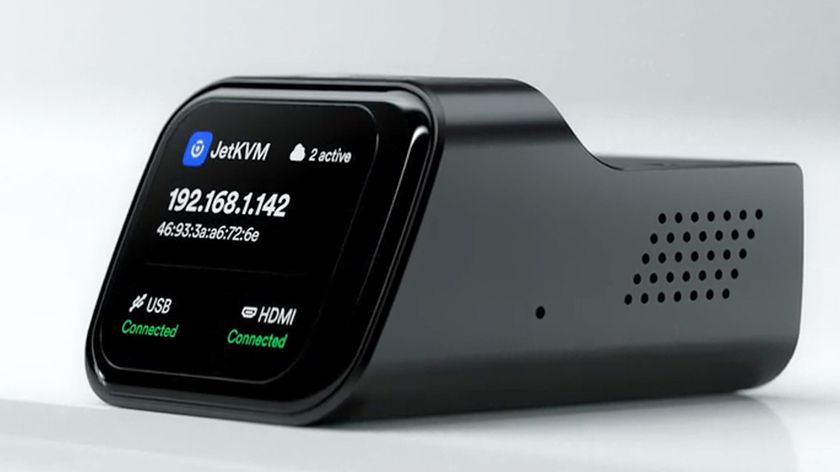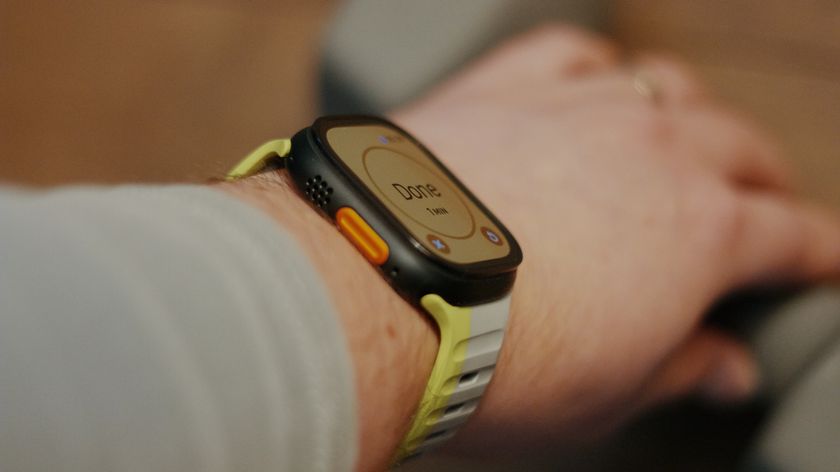10 pieces of pandemic-inspired ‘clean tech’ that shaped CES 2021
The new virus-inspired tech to help you stay healthy at the world's biggest tech show
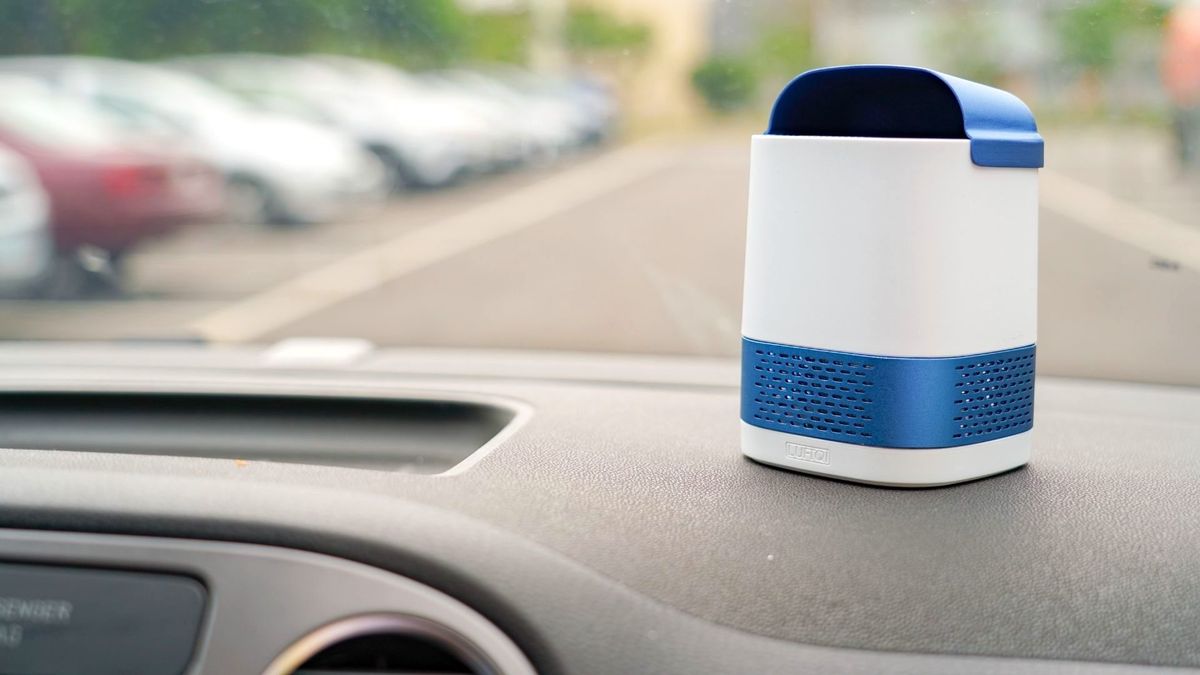
Sanitizer tech was made for Las Vegas. Each January armies of tech denizens cruise from booth to booth. They touch everything, They shake hands. They stroke robots. No wonder that in 2021 pandemic-inspired sanitizing technology is dominating the first-ever virtual CES.
Just as Berlin’s IFA 2020 embraced social distancing, so CES 2021 reflected a vast and varied global industry’s effort to collectively pivot to socially useful innovations.
From Bluetooth masks, air purifiers and a ‘BioButton’ to touchless taps and disinfection lamps for desktops, hopefully we’ll look back and laugh at this year’s decidedly serious and sanitary tech. For now, rejoice in a tech industry that finally seems to be able to read the room.
While not all is designed to kill or protect from the virus that’s ruined lives for the last year, a lot of the latest tech from CES 2021 is clearly geared towards helping you stay healthier during the pandemic - which is a key part of the fight.
1. LG PuriCare Mini Air Purifier

Amid a lot of air purifiers for the home at CES 2021 was LG’s PuriCare Mini, a wireless portable device designed to clean the air in enclosed spaces.
Weighing 530g, it’s designed to fit inside a car's cup holder and works for about eight hours on one charge, killing 99% of germs and allergens as it does (it’s certified by the British Allergy Foundation, which gives you a clue about its target market in normal times).
Looking like a Bluetooth speaker, it comes with an app, costs $176 / £130 (around AU$227) and is available now on the LG website and Amazon.
Get daily insight, inspiration and deals in your inbox
Sign up for breaking news, reviews, opinion, top tech deals, and more.
2. AirPop Active Plus smart mask
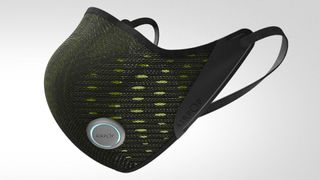
Smart face masks were everywhere at CES 2021 and we don’t need to tell you why. AirPop’s Active Plus – complete with a ‘Halo’ sensor – monitors pollutants, blocks 99% of nasties and collects data on the wearer’s breathing patterns and habits.
A smartphone app then informs you of your breaths per minute, outside air quality and how long until the filters need changing. It will be available in mid-February for $149.99 / £149.99 (around AU$265), which includes four filters that last for 40 hours each. Find out more at AirPop's website.
3. Cove - the stress-reducing wearable

There’s arguably a few pandemics going on right now, and one of them is stress. The brainchild of wellness company Feelmore Labs, Cove is a wearable device that’s designed to reduce stress and improve sleep.
The device silently applies gentle vibrations behind the wearer’s ears that kick-start a link between skin and the brain. By harnessing this connection, it’s claimed that Cove can then activate the part of the brain that regulates anxiety.
The result is a sense of calm and a gathering resilience to stress. That’s priceless (if it works)... except it’s obviously not, selling now from the Cove website for $490 / £360 (around AU$633). It comes with a companion app for history, stats and streaks, with heart rate and motion data to be added soon and we’ll certainly be calling this in to give it a try.
4. Luft Duo Portable air purifier
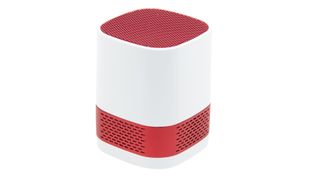
Another portable air purifier making its worldwide debut at CES 2021 was the Luft Duo, which uses ultraviolet LEDs that have the ability to decontaminate surfaces as well as photocatalytic tech (the absorption of light to create a chemical reaction) to deal with dust, pollen, mold and pathogens.
Like the LG PuriCare Mini Air Purifier it’s designed to be used in enclosed spaces such as cars, coffee shops, offices and airplanes, so it’s something of a travel companion. If you plan to use it in a public space – such as on a long-haul flight – it’s handy to know that it has a ‘night mode’ that runs at just 19 decibels. Using a replaceable, washable filter, it’s also waste-free.
Developed by Taiwanese brand LUFTQI and already selling in Asia, it costs $149 / £110 (around AU$192) and is available now from the LUFTQI website.
5. Kohler Touchless Bathroom Faucet collection
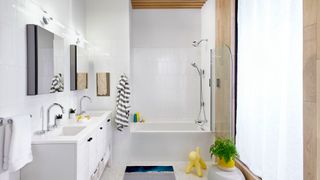
Since we can’t go to airports, why not have airport tech at home? Having previously created its voice-activated taps and touch-free Numi intelligent toilet we suspected that luxury bathroom brand Kohler was going to help us all go hands-free at home.
Cue its Touchless Bathroom Faucet collection, in which you can operate the taps without touching them. That’s handy when you get home from … well, anywhere … and could help halt the spread of bacteria and germs. Prices vary so see the Kohler website for more details.
6. Targus UV-C LED Disinfection Light
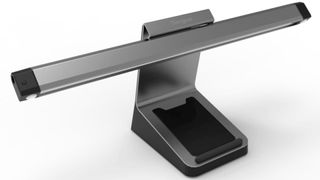
Worried about cleaning your phone and every other gadget you touch? The Targus UV-C LED Disinfection Light is designed to cover your keyboard in bacteria and virus-killing UV-C light for five minutes in every hour.
Great idea, but UV-C light is usually used in a sealed box (after all, it sterilizes by breaking down the DNA of microorganisms). So the soft purple UV-C light has motion sensors so it can wait until you’re away from the keyboard to begin, ceasing when you return.
Due to be launched in March 2021, the Targus UV-C LED Disinfection Light is a CES 2021 Innovation Awards Honoree and will go on sale March 2021. No prices yet but keep an eye on the Targus website.
7. BioIntelliSense BioButton
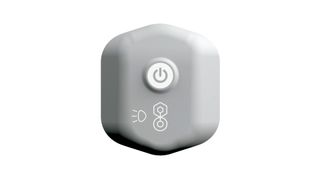
Here’s a gadget that could help the world open-up in 2021 and 2022. Designed to create an early warning system about COVID-19 symptoms, the BioButton collects data on the wearer’s vital signs; temperature, respiratory rate and heart rate at rest.
A coin-sized wearable device, it’s supposed to be worn on the chest for two days prior and seven days following a COVID-19 vaccine dose, but could be used to make safe workplaces, conferences and cruises. Find out more on the BioIntelliSense website.
8. Maskfone Bluetooth mask
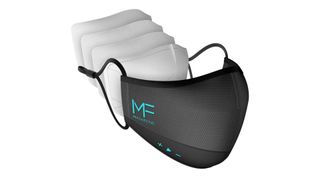
How many times have you removed a face mask only to get the ear loops tangled-up in your earphones or headphones? Or had to make muffled phone calls while wearing a mask?
If you have to spend a lot of your day wearing a mask then you may need to face up to Maskfone, the world’s first face mask with built-in earbuds. Maskfone is foremost a high-grade face mask, boasting a built-in N95 filter that comes with three PM2.5 filters included.
However, its headline acts are its built-in lightweight earbuds and built-in microphone, so once paired with a smartphone you can listen to music and make calls. Available now for $49.99 / £37 (around AU$64) from the Maskfone website.
9. Targus 2Office Antimicrobial Backpack
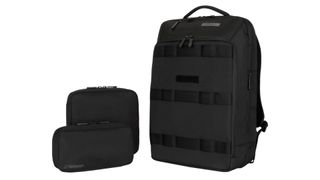
Not all gadgets and gear need sterilising and, even then, only parts of them ever get seriously fondled. Cue some clever antimicrobial coatings on this backpack’s handles and other “touchpoints.”
Able to carry laptops between 15-inches and 17.3-inches, the 2Office Antimicrobial Backpack will launch, says Targus, alongside a bunch of other antimicrobial products including tablet cases, privacy screens, mice and keyboards.
Due to be launched in March 2021, the price hasn’t yet been revealed so keep an eye on the Targus website.
10. LG CLOi autonomous robot with disinfecting UV light
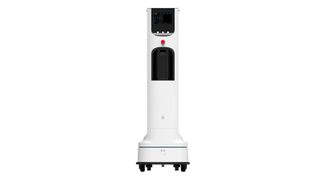
If you’re worried about war with robots then you might be slightly alarmed by LG’s new autonomous UV robot equipped with the skills to kill. Luckily, its ultraviolet C (UV-C) light is merely to disinfect high-touch, high-traffic areas.
Aimed at hospitality, retail, corporate and education customers in the US, it uses AI to move easily around tables, chairs and other furniture to fully irradiate a room’s touchable surfaces in under 30 minutes.
However, UV rays can pose a threat to humans, so like the Targus UV-C LED Disinfection Light, LG’s autonomous robot has a built-in safety lock activated by human motion detection sensors. Prices aren’t yet available.
Check out all of TechRadar's CES 2021 coverage. We're remotely covering the online-only show to bring you all the breaking tech news and launches, plus a smattering of hands-on reviews.
Jamie is a freelance tech, travel and space journalist based in the UK. He’s been writing regularly for Techradar since it was launched in 2008 and also writes regularly for Forbes, The Telegraph, the South China Morning Post, Sky & Telescope and the Sky At Night magazine as well as other Future titles T3, Digital Camera World, All About Space and Space.com. He also edits two of his own websites, TravGear.com and WhenIsTheNextEclipse.com that reflect his obsession with travel gear and solar eclipse travel. He is the author of A Stargazing Program For Beginners (Springer, 2015),

